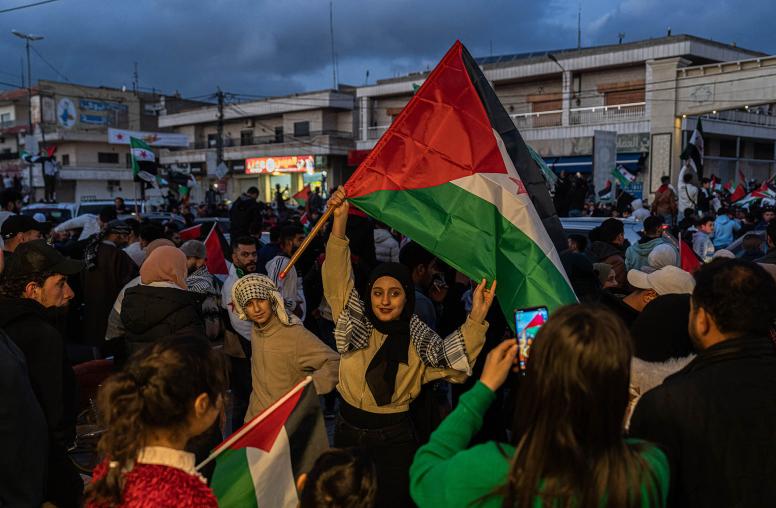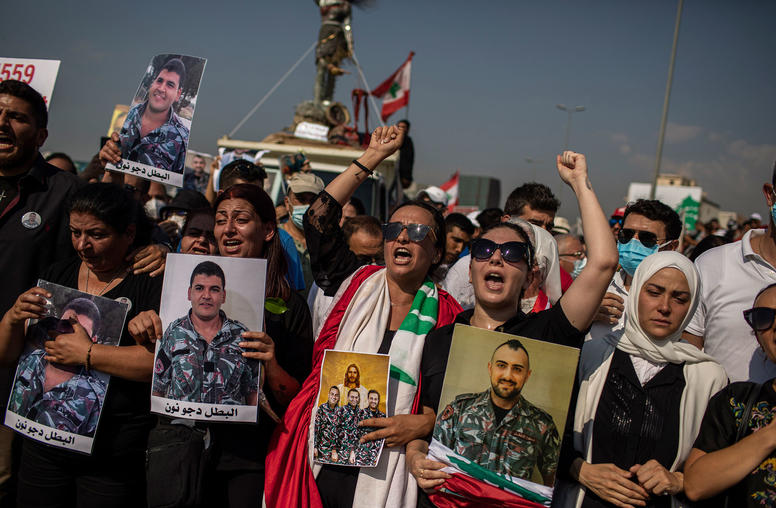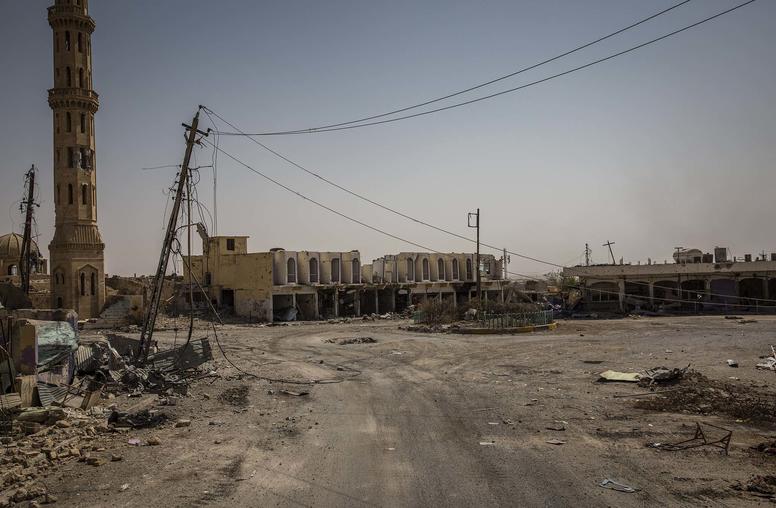Research & Analysis
U.S. Institute of Peace’s articles, reports, tools and other features provide policy analysis, research findings, and practitioner guides. These publications examine critical conflict issues at the center of the Institute’s work to prevent and resolve violent conflict.
The views expressed in these publications are those of the author(s).

Stigmatization Experienced by Families with Perceived ISIS Affiliation in Anbar Province
This discussion paper addresses the challenge of stigmatization faced by families in Iraq with perceived ISIS affiliation, particularly in Anbar province, where many have lived in the al-Hol camp. This stigma arises from community beliefs about their connection to ISIS through male relatives or past residence in ISIS-controlled areas. Stigmatization impacts these families' ability to reintegrate and includes harassment, rejection, property appropriation, and legal and social barriers. The paper includes key research findings and policy recommendations in response to these findings.

What Assad’s Fall Means for Lebanon
The fall of Assad’s Baathist regime was met with widespread jubilation among Lebanon's various communities, especially its Sunni, Christian and Druze, but trepidation among many Shias, whose political leadership relied on Baathist cover and support. Baathist Syria had played a major role in Lebanon, intervening in the country's civil war, occupying the country in the post-war period, and manipulating Lebanon's political landscape to benefit its political and economic interests. Though it was ousted from the country in 2005 following a mass uprising that blamed Damascus for the assassination of former Prime Minister Rafik al-Hariri, the Syrian regime continued to maintain influence in the country through its allies and supporters.

Iraq’s Lingering ISIS Challenge and the Role of Dialogue in Return and Reintegration
With conflicts raging in Gaza, Lebanon, Ukraine and Sudan, concerns related to the extremist group ISIS may seem overtaken by these other conflicts. After all, Iraq declared the group’s military defeat in 2017 after the territory held by the extremists was retaken by Iraqi government forces in partnership with the United States. Yet just over a month ago, U.S. and Iraqi forces conducted a joint military raid against the group, killing nine senior ISIS leaders who were hiding in the rugged Hamrin Mountains in northern Iraq. This raid comes off the heels of the UK’s domestic intelligence chief stating that the group is positioning itself as a resurgent threat. Indeed, ISIS has conducted over 150 attacks so far this year in Iraq and Syria, more than those claimed by the group in 2023.

Osama Gharizi on ISIS’s Lingering Presence in the Middle East and Beyond
The Global Coalition to Defeat ISIS recently recommitted itself to fighting the remnants of the Islamic State “not just as a group and an entity,” says USIP’s Osama Gharizi, “but also dealing with the factors that gave rise [to it]” and the legacies it left behind — like the process of repatriating those who lived under its rule.

Hassan Nasrallah is dead. What happens next in the Middle East?
Two weeks ago, Israel announced that halting Hezbollah attacks had become an official goal of its post-October 7 war effort. Since then, Israel conducted a sophisticated clandestine attack on Hezbollah’s communications infrastructure and struck numerous Hezbollah targets in southern Lebanon and the suburbs of Beirut, killing many of Hezbollah’s senior leaders. Then, on Friday, an Israeli airstrike assassinated Hezbollah’s leader, Hassan Nasrallah, who led the group for over 30 years.

10 Years After ISIS’s Genocide, Iraq Is Still Dealing with the Human Legacies
This year marks the 10-year anniversary of ISIS’ capture of a third of Iraqi and Syrian territory and genocide against the Ezidis (Yazidis) and other communities. Supported by the U.S.-led Global Coalition to Defeat ISIS, Iraq declared military victory over the terrorist group in December 2017 and has significantly reduced and controlled the threat ever since. Significant progress has also been made in the recovery and stabilization process, with the successful return to their areas of origin of some five million of the six million Iraqis internally displaced by the conflict and the rebuilding of many of the regions that the conflict devastated.

Iraq’s Provincial Council Elections: The Way Forward in Nineveh Province
On December 18, Iraqis will elect members of the provincial councils, the highest oversight bodies of subnational government and key providers of public services. The elections are the first at the provincial level in over a decade and come in the wake of the 2019 anti-government protests that resulted in the dissolution of the provincial councils following demands from the protesters who accused them of corruption. Recent findings from the U.S. Institute of Peace’s Conflict and Stabilization Monitoring Framework in Nineveh Province reveal that candidates are facing a distrustful electorate that is lacking confidence in state institutions.

Amid Historic Crisis, Has a New Hope Emerged in Lebanon?
As Lebanon suffers from an historic economic crisis propelled by the venality of its political establishment, the May 15 elections have injected a glimmer of hope amid gloomy prospects for the future. Thirteen independent candidates — part of what is dubbed the “change opposition” — won seats in the 128-member Parliament. “The election of these 13 MPs [members of Parliament] is a very important, gradual first step toward more peaceful political change and reform in Lebanon,” said Mona Yacoubian, a Lebanon expert and senior advisor for the U.S. Institute of Peace. But the road ahead is fraught with internal challenges and external forces that could impede Lebanon’s much-needed reform.

Lebanon’s Vote and the Prospect of Long-awaited Political Reform
On May 15, Lebanon held its first election since mass protests swept the country in October 2019. Trigged by economic crisis and profound frustration with an inept, detached ruling establishment, the protest movement sparked hope that real change to the country’s anachronistic, corrupt political system was in the offing. Fast forward nearly three years, and such promise seems to have been extinguished by the calamitous August 2020 Beirut port explosion, traditional party supporters’ efforts to stifle new opposition movements, and an historic economic collapse.

Four Years After ISIS, Iraq’s Tal Afar Remains Riven by Communal Divisions
Iraq is a country beset by a host of political, security, economic and social challenges, including addressing the human legacy of the Islamic State’s (ISIS) rampage through the country just a few years ago. Almost four years after the liberation of Nineveh’s Tal Afar district from ISIS control, feelings of marginalization, neglect and exclusion persist among communities in the region, epitomizing how such feelings have driven ethnic and sectarian tensions and conflict in post-2003 Iraq. Recognition of these sentiments and an understanding of the factors underpinning them, can help communities in the district allay these drivers of tension and move forward together.